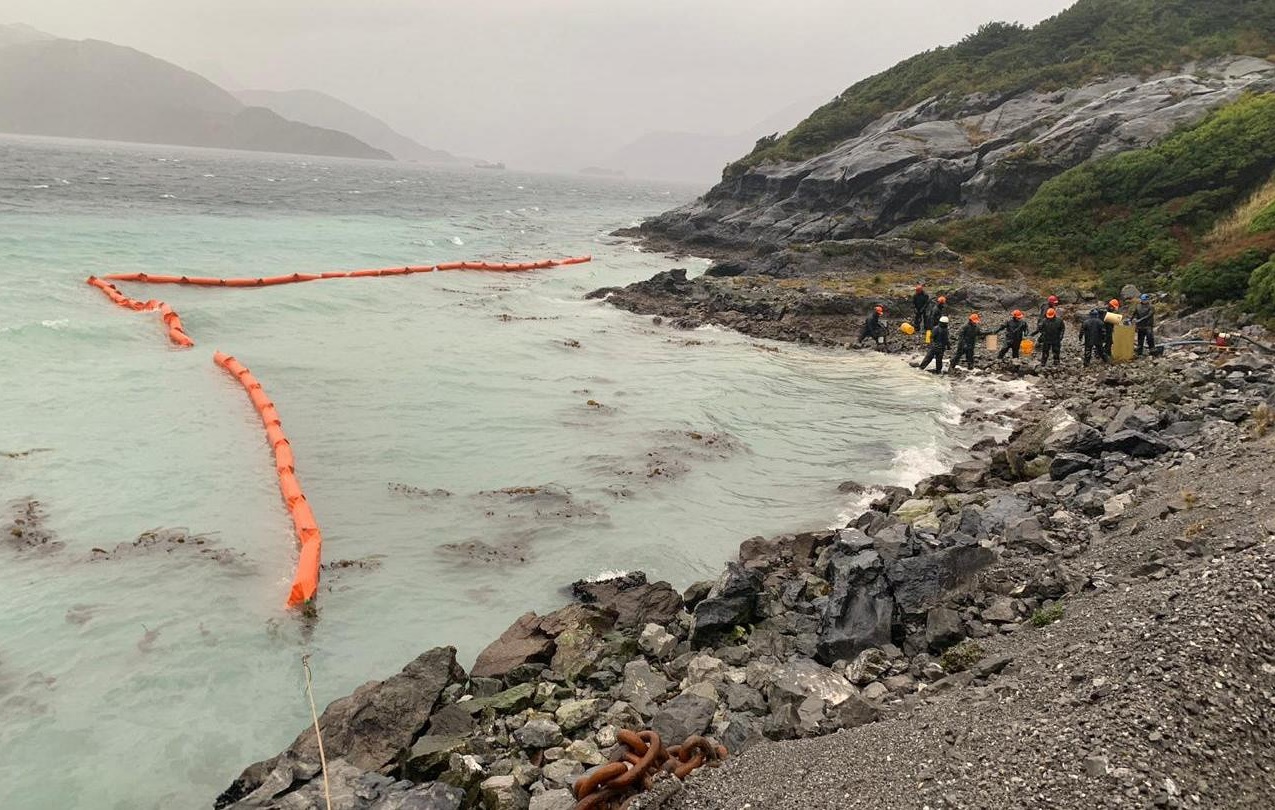RIO DE JANEIRO, BRAZIL – A large group of fishermen sued Siderúrgica de Huachipato and demanded a millionaire compensation for the spill in April 2019 of 40,000 liters of diesel fuel on Guarello Island, located in the Magallanes region, in the extreme south of Chile, local press reported Friday.
According to the source, the plaintiffs, who are a total of 2,426 people who live off artisanal fishing, denounce that the company dumped the fuel and contaminated soil on the shores of this island and believe that the spill altered the ecosystem of the Madres de Dios Archipelago, located about 250 kilometers from the town Puerto Natales.
It affected the way of life of the native Patagonian Kawéskar people, who live in Puerto Edén, on Wellington Island.
Compañía Siderúrgica Huachipato has been extracting different minerals from the area since 1951, and from there, it transfers them to its plant in Talcahuano, where it processes them.

The spill occurred in April 2019, but it was not until Wednesday, June 22, 2022, when the fishers filed a lawsuit before the Court of Appeals of Punta Arenas for infringement of the Navigation Law.
According to the complaint, “when the diesel was spilled into the sea, it generated a serious alteration to the ecosystem of the place, affecting the marine biota, such as shellfish and fish, the column of water masses, and sediments,” explains the lawsuit, which demands compensation of US$10,500 for each of the affected fishermen.
“The area is part of the habitat of the Kawéskar people, who in the past as marine hunter-gatherers inhabited and still inhabit from the south of the Gulf of Penas to the Strait of Magellan,” it details.
With information from EFE

